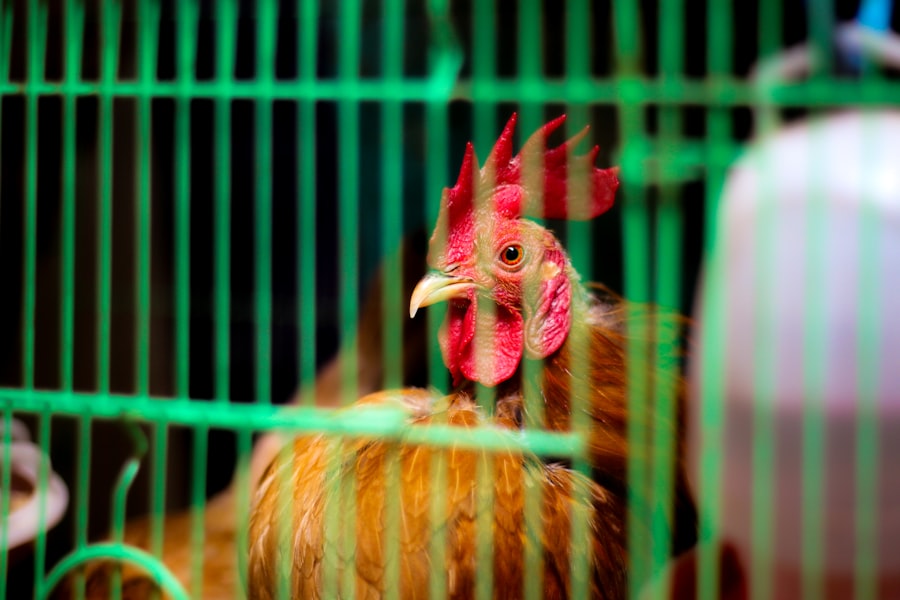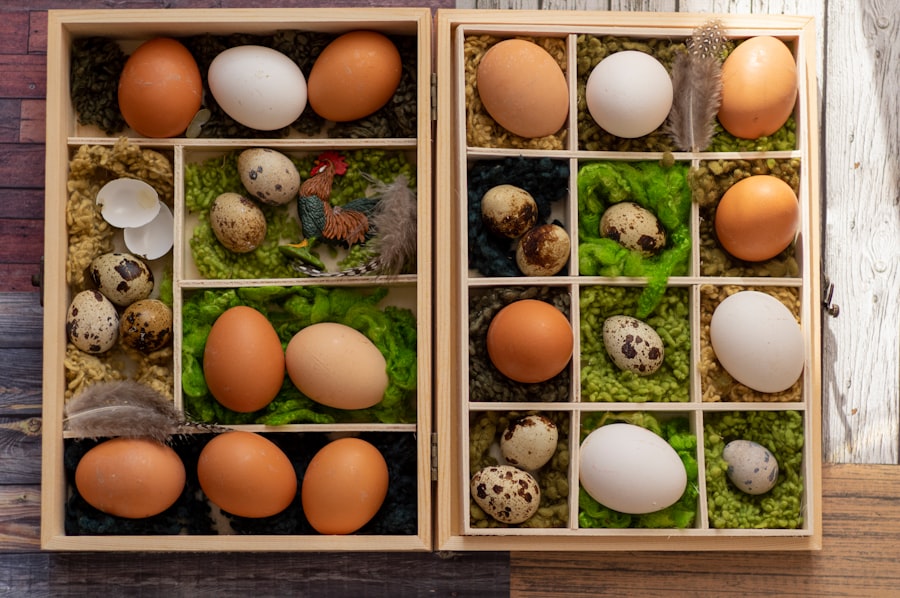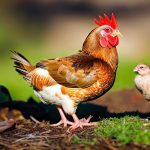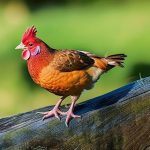Chicken keeping is a popular and beneficial activity suitable for individuals of various ages and living environments. Whether in rural or urban settings, raising chickens offers advantages such as fresh egg production, natural pest control, and a connection to nature. These birds are generally low-maintenance and can be integrated into many households.
Chickens are known for their sociable and inquisitive behavior, making them suitable pets for families with children. Beyond practical benefits, many chicken keepers find the experience of caring for these animals to be relaxing and therapeutic. However, prospective chicken owners should be aware of the essential requirements for maintaining the health and well-being of their flock.
This article will explore key aspects of chicken keeping, including:
1. Space and housing requirements
2. Feeding and nutrition
3.
Health and veterinary care
4. Predator protection and security measures
5. Social and behavioral needs
6.
Time commitment and responsibilities
Understanding these fundamental elements is crucial for successful and responsible chicken keeping.
Table of Contents
- 1 Space and Housing Requirements
- 2 Feeding and Nutrition
- 3 Health and Veterinary Care
- 4 Predators and Security
- 5 Social and Behavioral Needs
- 6 Time and Commitment
- 7 FAQs
- 7.1 What are some common challenges in keeping chickens?
- 7.2 What are some important factors to consider before keeping chickens?
- 7.3 What are some tips for keeping chickens healthy and safe?
- 7.4 What are some potential legal considerations for keeping chickens?
- 7.5 What are some resources for learning more about keeping chickens?
Key Takeaways
- Keeping chickens can be a rewarding experience and provide a sustainable source of fresh eggs.
- Adequate space and housing are essential for the health and well-being of chickens.
- A balanced diet with access to fresh water is crucial for the overall health and productivity of chickens.
- Regular health check-ups and access to veterinary care are important for preventing and treating illnesses in chickens.
- Protecting chickens from predators and providing a secure coop is essential for their safety and well-being.
- Chickens are social animals and require space to roam and engage in natural behaviors.
- Keeping chickens requires a commitment of time and effort to ensure their welfare and productivity.
Space and Housing Requirements
Space Requirements for Happy and Healthy Chickens
When it comes to keeping chickens, providing adequate space and housing is essential for their health and well-being. Chickens need enough space to move around freely, stretch their wings, and engage in natural behaviors such as scratching and dust bathing. The general rule of thumb is to provide at least 2-3 square feet of coop space per chicken, along with access to an outdoor run or free-range area.
Designing a Safe and Functional Coop
The coop should be well-ventilated, predator-proof, and equipped with roosting bars and nesting boxes. It is important to keep the coop clean and dry, as chickens are susceptible to respiratory issues and other health problems if they are exposed to damp or dirty conditions. Additionally, the outdoor run or free-range area should be securely fenced to protect the chickens from predators and provide them with access to fresh grass, insects, and other natural forage.
Considering the Location and Layout of the Coop and Run
Overall, providing a safe and comfortable living environment is crucial for the health and happiness of your chickens. In addition to space requirements, it is important to consider the location of the chicken coop and run. The coop should be situated in a well-drained area with plenty of natural light, while also offering protection from extreme weather conditions such as heat, cold, wind, and rain. It is also important to consider the proximity of the coop to your home, as you will need easy access for daily care and maintenance. When planning the layout of the coop and run, it is helpful to consider factors such as sun exposure, wind direction, and access to water and electricity.
Feeding and Nutrition

Proper nutrition is essential for the health and productivity of your chickens. A well-balanced diet will not only support egg production but also contribute to overall health and vitality. The foundation of a chicken’s diet is a high-quality commercial feed that is specifically formulated for laying hens.
This feed typically contains a balanced mix of protein, carbohydrates, vitamins, and minerals to meet the nutritional needs of your chickens. In addition to commercial feed, chickens can also benefit from supplemental treats such as fruits, vegetables, grains, and mealworms. These treats should be offered in moderation and should not exceed 10% of the chicken’s total diet.
In addition to providing a balanced diet, it is important to ensure that your chickens have access to clean water at all times. Chickens require a constant supply of fresh water to support their overall health and egg production. Waterers should be checked daily and cleaned regularly to prevent the buildup of bacteria and algae.
In colder climates, it is important to prevent water from freezing by using heated waterers or manually refreshing the water throughout the day. By providing a nutritious diet and access to clean water, you can support the health and well-being of your chickens while also maximizing their egg production.
Health and Veterinary Care
Maintaining the health of your chickens is essential for their well-being and productivity. Regular health checks can help you identify any potential issues early on and prevent the spread of disease within your flock. It is important to observe your chickens daily for any signs of illness or injury, such as changes in behavior, appetite, or egg production.
Additionally, regular handling of your chickens can help you monitor their overall condition, including the condition of their feathers, skin, eyes, and feet. In addition to regular observation, it is important to establish a relationship with a poultry veterinarian who can provide guidance on preventative care, vaccinations, and treatment options for common poultry diseases. Your veterinarian can also advise you on parasite control, biosecurity measures, and proper quarantine procedures for introducing new birds to your flock.
By working closely with a poultry veterinarian, you can ensure that your chickens receive the best possible care and support for their health and well-being.
Predators and Security
Protecting your chickens from predators is a critical aspect of keeping them safe and secure. Common predators such as foxes, raccoons, hawks, and snakes pose a threat to chickens and their eggs. To safeguard your flock, it is important to implement effective predator-proofing measures for the coop and outdoor run.
This may include using hardware cloth instead of chicken wire for fencing, securing latches on doors and windows, installing motion-activated lights or alarms, and using guard animals such as dogs or geese to deter predators. In addition to physical barriers, it is important to practice good management techniques to minimize the risk of predation. This may include locking up your chickens in the coop at night when predators are most active, removing food sources that may attract predators, and regularly inspecting the perimeter of the coop for signs of potential entry points.
By taking proactive measures to protect your chickens from predators, you can create a safe and secure environment for them to thrive.

Providing opportunities for natural behaviors is essential for the well-being of your chickens. This may include providing perches for roosting, dust bathing areas for grooming, and access to outdoor space for foraging.
Human Interaction and Enrichment
In addition to social interactions within the flock, chickens also benefit from human interaction and enrichment activities. Spending time with your chickens can help build trust and reduce stress levels within the flock. You can also provide enrichment activities such as hanging treats or toys in the coop or run to encourage natural behaviors and mental stimulation.
Creating a Supportive Environment
By understanding the social and behavioral needs of your chickens, you can create an environment that supports their natural instincts while also fostering positive interactions within the flock.
Time and Commitment
Keeping chickens requires a significant time commitment for daily care and maintenance. This includes providing fresh food and water, cleaning the coop and run, collecting eggs, monitoring the health of your flock, and addressing any issues that may arise. Additionally, it is important to consider the time required for seasonal tasks such as predator-proofing the coop, managing waste disposal, and maintaining the overall cleanliness of the living environment.
In addition to daily care tasks, it is important to consider the long-term commitment involved in keeping chickens. Chickens have an average lifespan of 8-10 years or more, so it is important to be prepared for the ongoing care and responsibility that comes with raising them. This may include planning for vacations or travel arrangements that allow for someone else to care for your chickens in your absence.
By understanding the time and commitment involved in keeping chickens, you can make informed decisions about whether raising chickens is the right choice for you. In conclusion, keeping chickens can be a rewarding experience that provides numerous benefits for both individuals and families alike. By understanding the key aspects of chicken care including space requirements, feeding and nutrition, health and veterinary care, predator protection, social and behavioral needs, as well as time commitment involved in caring for these animals; you can create a safe environment where your chickens can thrive.
Whether you are new to raising chickens or have years of experience with poultry husbandry; providing proper care will ensure that your flock remains healthy, happy, productive members of your household.
If you’re struggling with the difficulty of keeping chickens, you may also be interested in learning about when guinea fowl lay eggs. According to Poultry Wizard, guinea fowl typically start laying eggs at around 24 weeks of age, which can be helpful information for those looking to expand their flock.
FAQs
What are some common challenges in keeping chickens?
Some common challenges in keeping chickens include predators, disease, maintaining a clean coop, and providing proper nutrition.
What are some important factors to consider before keeping chickens?
Before keeping chickens, it is important to consider local regulations, space requirements, predator protection, and the time and effort required for daily care and maintenance.
What are some tips for keeping chickens healthy and safe?
To keep chickens healthy and safe, it is important to provide a clean and secure coop, regular veterinary care, proper nutrition, and protection from predators.
What are some potential legal considerations for keeping chickens?
Potential legal considerations for keeping chickens may include local zoning laws, restrictions on the number of chickens allowed, and regulations regarding coop placement and cleanliness.
What are some resources for learning more about keeping chickens?
There are many resources available for learning more about keeping chickens, including books, online forums, local agricultural extension offices, and classes or workshops offered by poultry organizations.
Meet Walter, the feathered-friend fanatic of Florida! Nestled in the sunshine state, Walter struts through life with his feathered companions, clucking his way to happiness. With a coop that’s fancier than a five-star hotel, he’s the Don Juan of the chicken world. When he’s not teaching his hens to do the cha-cha, you’ll find him in a heated debate with his prized rooster, Sir Clucks-a-Lot. Walter’s poultry passion is no yolk; he’s the sunny-side-up guy you never knew you needed in your flock of friends!







